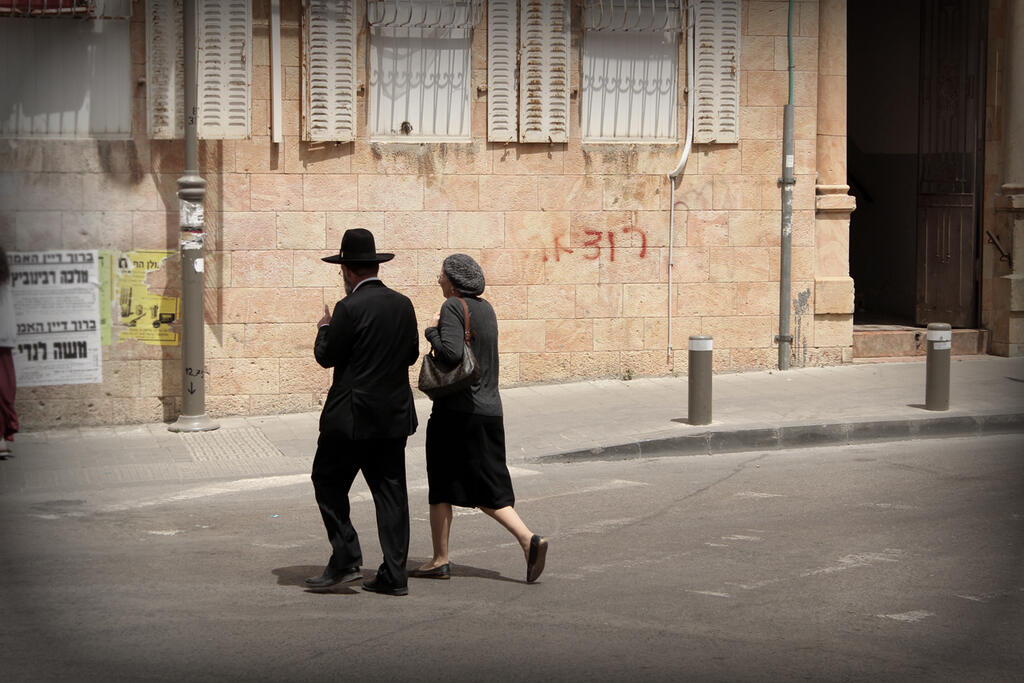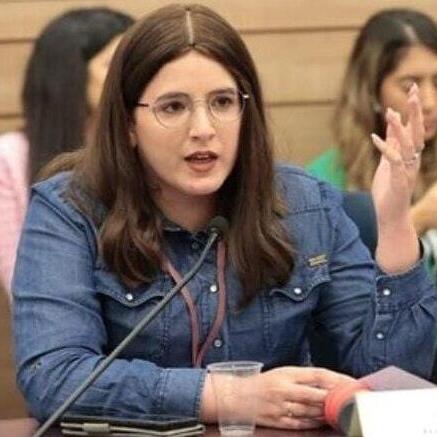Two months ago, Nofar, 17, experienced a distressing incident at a bus stop near her home. She was denied entry onto the bus despite having a valid bus pass. "The driver waved his hand at me to stop, closed the doors and drove off. Besides being late for work, I was shocked," she said.
Two weeks later, Nofar encountered the same distressing situation again. "I have never faced such situations in my life, I was never prevented from boarding a bus," she said. "This time there was an older woman with me, and we were both rejected. It was unpleasant. I work in an ultra-Orthodox neighborhood and I was dressed accordingly, with a long-sleeved shirt and a long skirt, and still I was denied entry. It's unequal and it shouldn't happen. It's a public bus that should serve everyone, not a private shuttle."
Attorney Einat Fischer Lalo, executive director of the Israel Women's Network, calls the incident in which a young woman is denied entry to a bus claiming it is exclusively for men, an outrageous and deeply concerning situation. She said that such occurrences are utterly unacceptable in Israel, especially in 2023.
"This is not merely segregation, but a forbidden exclusion of women from the public sphere, which should be equal and accessible to all. Regrettably, this is not the first instance, and likely won't be the last," she said.
Around two weeks ago, the Knesset held a special meeting of the lobby for ultra-Orthodox and religious women, focusing on "The right to gender segregation." However, when religious and ultra-Orthodox women's organizations sought permission to participate and voice their opinions on the matter, they were denied access, with the reason given being that the event was restricted to lobby members and invitees only.
The caucus comprised 16 Knesset members, including Boaz Bismuth (Likud), Yanon Azoulai (Shas), Almog Cohen, Yitzhak Kreuzer (Otzma Yehudit), and only four female members of the Knesset – Tali Gottlieb, Keti Shitrit, Eti Atiya (Likud), and the caucus chairwoman Limor Son Har-Melech (Otzma Yehudit).
"The government is apparently reconsidering the issue of gender segregation, aiming to extend its scope to more locations," Fischer Lalo said. "Concurrently, we are witnessing brazen efforts to stifle any opposition to these alarming trends, including deliberately silencing the voices of women, both ultra-Orthodox and religious, who seek to speak out against this phenomenon. There is a direct assault on women's organizations that strive to protect women's rights and secure their rightful place in society. Despite their repeated promises not to undermine women's rights, their actions tell a different story."
Tsipi Lavi, an activist representing ultra-Orthodox women in the Knesset through the Nivharot Haredi Women's Networked experienced gender segregation at a gymboree event with her three-year-old son. "It's a ridiculous story because these are small children. I think gender segregation should be allowed in a certain way, but it needs to be anchored, and it cannot be allowed to proceed without conditions. It must be equal. Otherwise problems arise when we're denied certain things, such as entering public places," she said.
"Gender segregation is something you grow up with in the ultra-Orthodox sector, and there are certain places from which you are excluded because the place is segregated. One of the problems is that my voice as an ultra-Orthodox woman is not heard, neither in the government nor in the Knesset, and in this sense the government threatens us," Lavi added.
"I am fighting for representation in the Knesset so that our voice is heard. The Knesset is supposed to be a microcosm of society. Meanwhile, it certainly reflects society in the way that, in the ultra-Orthodox sector, there is an unreasonable exclusion of women, and that there is not a single ultra-Orthodox woman in the Knesset. There should be ultra-Orthodox women in the Knesset so that there is someone to speak on our behalf," she concluded.



